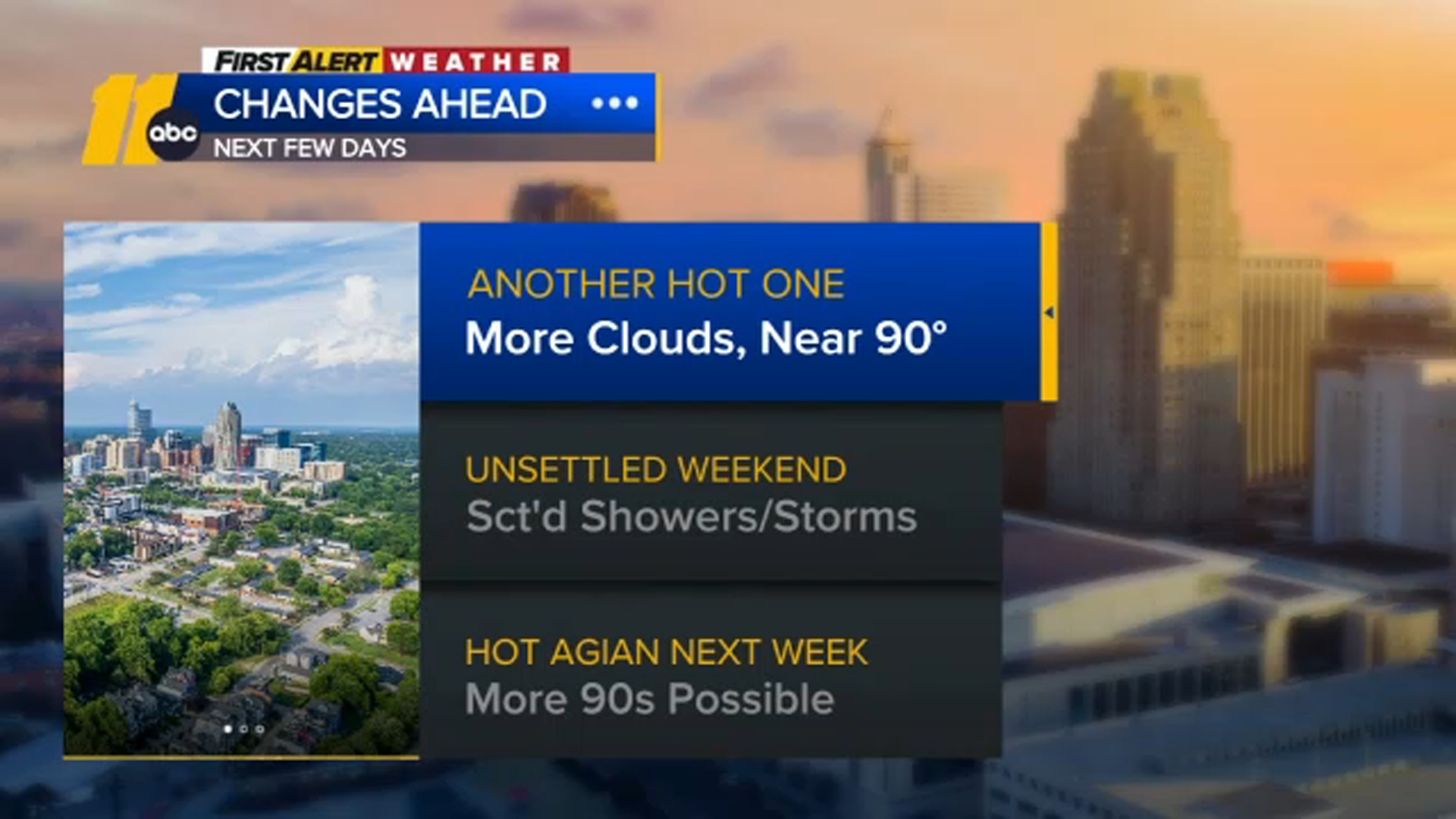People living in tents off U.S. 70 push back after being told to leave: 'We're human beings'

GARNER, N.C. (WTVD) -- It may look like a patch of grass or an empty space but dozens of people call a section of U.S. 70 home.
ABC11 spoke with people who are living there. They said they've built a community and the idea that city leaders want them to leave has them scared and frankly, mad.
In a recent statement, the North Carolina Department of Transportation said it has been working with the City of Raleigh and the Garner Police Department to identify and survey camps made nearby.
In the past two weeks, law enforcement deemed this area unsafe and went on to tell those living at the campsite that they would soon be considered trespassers. The officers also left notices warning people to vacate the area.
A large group of activists and other supporters gathered there in a show of solidarity to argue that they have nowhere else to go and believe if they're not harming anyone and there is no affordable housing to live in, they should be allowed to stay.
"We are not dumb; we're human beings. Look up into the sky and ask that man up there what you're doing. Ask God what you're doing. Cause these people haven't done nothing wrong at all. We take care of our own here," said John Valdez who lives in the community.
The Raleigh Police Department said it has repeatedly offered ACORNS services and will continue to work to connect people to programs that could help.
"We just want to come out and say, no, this is not the way that a civilized society, the richest nation in the world, should be treating its citizens and that homeless people need homes, not to be pushed out from a park where they have a little bit of safety, a bus route close by," said Mary Rider, who lives in Garner and has offered assistance to those living in the area.
According to the Raleigh Rescue Mission, there are more than 6,000 people experiencing homelessness and seeking services across the city and Wake County.
Housing affordability has been a point of emphasis amongst local officials, as prices have skyrocketed in the region. According to Triangle MLS, in March 2019, the median sales price was $269,900. Five years later, the median sales price was $399,000.
"The current discussion at city councils is what percentage of housing developments that they're authorizing to be built now should be set aside for affordable housing. But their definition of affordable housing is affordable for people with incomes of $45,000 a year or more," said Marcia Timmel, who lives in Garner and has provided food to those living here.
Nicole Reynolds was living out of a hotel until she was priced out.
"Once you're out here unless some miracle happens during that time, it's impossible to get back up on your feet," said Reynolds.
She was packing up her belongings Tuesday morning, concerned about the possibility of facing law enforcement.
"I'm frantic. I can't go to jail. I have a criminal background. It sucks that you'd be incarcerated," said Reynolds.
Both Rider and Timmel agreed that these encampments were not a long-term solution, as they urged for further action from elected leaders.
"We have to have a collaborative effort through the federal and state and local governments to address this problem," Rider said.
The order to vacate the area comes the same week as the Supreme Court hears arguments to decide whether bans on homeless encampments are "cruel and unusual."
Much of the argument focused on whether the "anti-camping" ordinances in Grants Pass, Oregon, prohibited conduct, such as sleeping with bedding in a public space or the status of being homeless. The city of 38,000 argues that the rules are focused narrowly on conduct but the plaintiffs have argued that enforcement has been targeted at people who are homeless.






